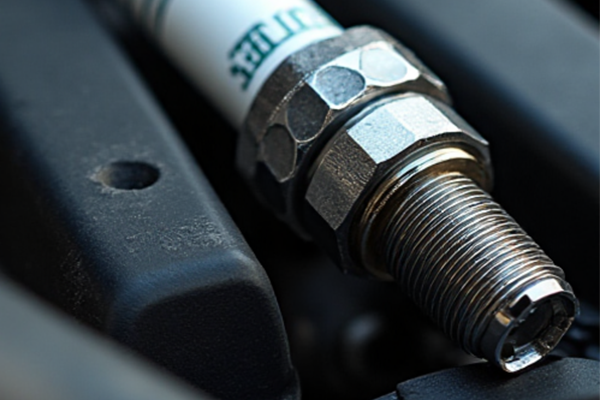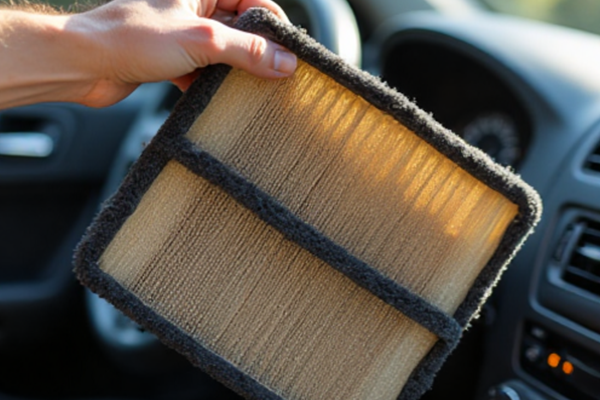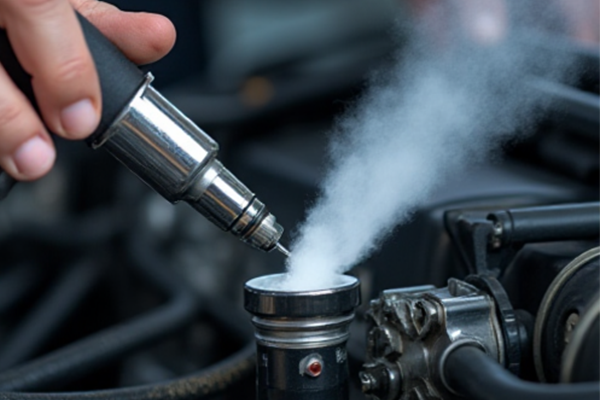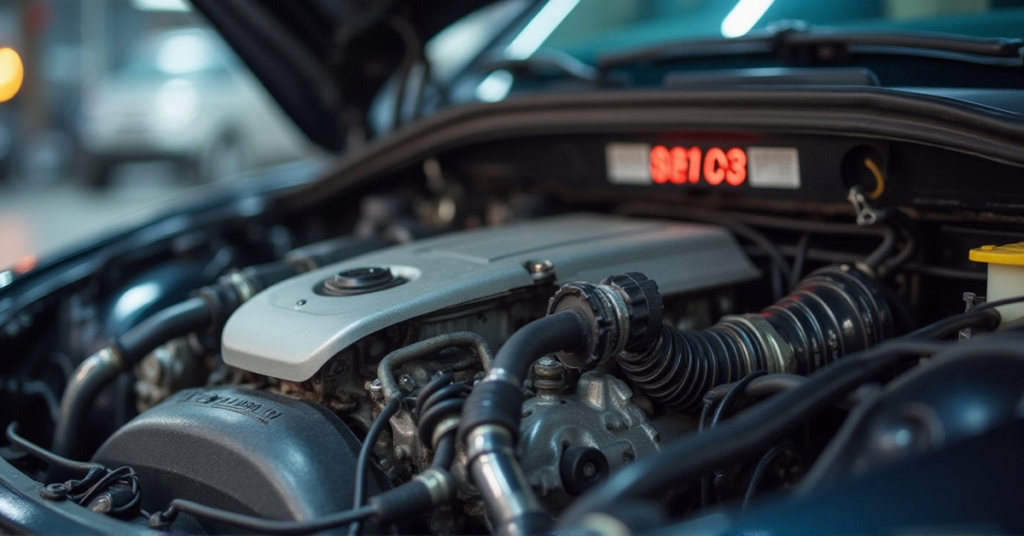Owning a car comes with regular maintenance requirements, and one of the most essential yet often overlooked aspects is an engine tune-up. A skilled auto repair Houston professional can perform this essential service as part of your engine repair services, a tune-up ensures your vehicle continues to run smoothly, remains fuel-efficient, and prevents major mechanical failures down the road.
In this blog, we’ll explore what a car engine tune-up is, why it’s important, and provide a comprehensive checklist of what’s involved.
If you’re searching for ‘auto repair near me,’ we’re here to help — schedule your service today.
What is a Car Engine Tune-Up?
A car engine tune-up is a comprehensive service that ensures your engine is running at its optimal level. It involves checking and adjusting key components of the engine to enhance performance, improve fuel efficiency, reduce emissions, and extend the life of your vehicle. A tune-up addresses wear and tear and corrects minor issues that could lead to major repairs if left unchecked.
Traditionally, engine tune-ups involved adjusting the carburetor, ignition timing, and other mechanical parts. However, with modern vehicles, tune-ups focus more on replacing worn components, updating engine control systems, and optimizing performance using diagnostic tools.
Why is a Car Engine Tune-Up Important?
Over time, various components of your engine degrade due to constant use. Without a tune-up, you may experience:
- Reduced fuel efficiency
- Poor engine performance (such as stalling or rough idling)
- Difficulty starting the engine
- Increased emissions
- Potential for breakdowns
Regular tune-ups help prevent these issues by identifying and addressing problems early, extending the life of your engine, and improving overall vehicle performance.
How Often Should You Get a Tune-Up?
While recommendations vary based on vehicle make and model, most modern cars require a tune-up every 30,000 to 50,000 miles. However, if you notice performance issues such as a drop in fuel efficiency, rough idling, or difficulty starting the engine, it might be time to schedule a tune-up sooner.
Complete Car Engine Tune-Up Checklist
Here’s a detailed checklist of what typically gets inspected and replaced during a car engine tune-up:
- Spark Plugs

Spark plugs ignite the air/fuel mixture in the engine’s cylinders. Over time, they can wear out or get fouled, causing misfires or reduced efficiency. During a tune-up, the spark plugs are inspected and replaced if necessary.
- Ignition Wires
The ignition wires, which carry the spark from the ignition coil to the spark plugs, can deteriorate over time. These are inspected for cracks, corrosion, or wear, and replaced if needed.
- Fuel Filter
The fuel filter prevents dirt and debris from entering the fuel injectors and engine. A clogged fuel filter can lead to poor fuel delivery and reduced performance. It’s typically replaced during a tune-up.
- Air Filter

The air filter ensures clean air enters the engine for combustion. A clogged air filter can reduce airflow, leading to poor engine performance and reduced fuel efficiency. Replacing the air filter is an essential part of any tune-up.
- PCV Valve (Positive Crankcase Ventilation Valve)
The PCV valve helps reduce emissions by rerouting unburned gases back to the engine for combustion. It can get clogged over time, leading to higher emissions or poor performance. If needed, the PCV valve is replaced.
- Throttle Body Cleaning
The throttle body controls the amount of air that enters the engine. Over time, carbon deposits can build up, causing rough idling or poor acceleration. Cleaning the throttle body is often part of a tune-up to restore smooth engine operation.
- Oxygen Sensors
Oxygen sensors monitor the exhaust gases and help regulate the air-fuel mixture. If these sensors fail or become inaccurate, they can lead to poor fuel economy and increased emissions. These are typically inspected during a tune-up.
- Timing and Drive Belts
While not always part of a standard tune-up, the timing belt or serpentine belt should be inspected for wear and tear. A failing belt can lead to severe engine damage, so replacing it proactively can save costly repairs.
- Battery and Charging System
The battery and charging system are inspected to ensure the engine starts properly and that the electrical systems function correctly. The battery terminals may also be cleaned, and the battery’s voltage is tested to ensure it holds a charge.
- Fluid Levels Check
During a tune-up, all critical fluid levels are checked, including engine oil, transmission fluid, coolant, brake fluid, and power steering fluid. If any fluids are low or dirty, they are topped off or replaced.
- Fuel Injection System Cleaning

The fuel injectors deliver fuel into the engine’s combustion chambers. Over time, they can become clogged, leading to poor performance and reduced fuel efficiency. Fuel injector cleaning is often included in a tune-up to restore proper fuel flow.
- Exhaust System Inspection
The exhaust system is inspected for leaks or signs of damage. A malfunctioning exhaust can affect performance and emissions, and should be repaired as part of the tune-up process.
- Emission System Check
Modern cars have complex emissions control systems, including catalytic converters and EGR (Exhaust Gas Recirculation) valves. These systems are checked to ensure they are functioning correctly, reducing harmful emissions.
- Engine Diagnostics
Modern cars have an onboard diagnostic system (OBD) that monitors various engine systems. During a tune-up, a mechanic will use a diagnostic scanner to check for any error codes and address them as needed.
- Cooling System Inspection
The cooling system is inspected for leaks or damage, and the radiator, hoses, and water pump are checked to ensure the engine stays cool. If necessary, the coolant may be flushed and replaced.
Final Thoughts
Regular car engine tune-ups are crucial for keeping your car in good shape, avoiding expensive repairs, and making sure it performs well. By checking off the items on the list, you can make sure your car is reliable, uses less fuel, and is ready for driving. Always look at your car’s manual for the recommended times to get a tune-up and get one if you notice any problems.
If you’re not sure when your last tune-up was or if you need one, take your car to a trusted mechanic for a check-up. Getting tune-ups regularly can save you money and keep your car safe and efficient for a long time.
Keep Your Car in Peak Condition with Eric’s Expert Auto Care
Keep your car running smoothly and safely with a trusted team at Eric’s Car Care. Whether it’s a routine check-up or a major repair, we’ve got you covered! Schedule your service today by calling us at 713-667-9293 and experience top-notch care for your vehicle. Book now and drive with confidence!

